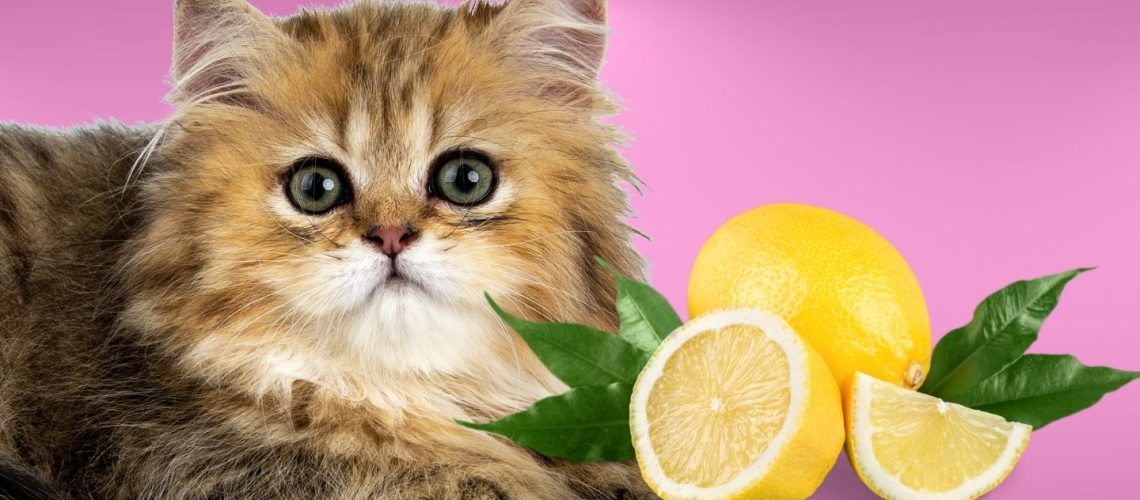The short answer to the question of whether cats can eat lemons is no. Lemons are not toxic to cats, but they are not suitable food for them either. Cats are obligate carnivores, meaning that they have a biological need for animal-based protein and fat, and do not have a digestive system adapted to process plant matter. Lemons, like other citrus fruits, are acidic and can cause stomach upset in cats. Understanding a cat's dietary needs and avoiding feeding them human food is crucial for maintaining their health.
Cats as obligate carnivores
Definition of obligate carnivores
Obligate carnivores are animals that have evolved to rely solely on animal-based protein and fat sources for their nutrition. They have specific physiological adaptations that enable them to efficiently process and utilize these nutrients.
Evolutionary adaptations in cats
Cats have developed a short and highly acidic digestive tract, which makes digesting plant matter difficult. They also produce specific enzymes and amino acids that make them highly efficient predators, capable of digesting and absorbing nutrients from prey animals.
Importance of animal-based protein and fat in a cat's diet
Cats require high levels of animal-based protein and fat in their diet to support normal growth, muscle maintenance, and overall health. Unlike some other species, cats are unable to synthesize certain essential nutrients from plant-based sources and rely on consuming other animals to obtain these nutrients.
Nutritional composition of lemons
Vitamins and minerals in lemons
Lemons are a type of citrus fruit that is high in vitamin C, fiber, and other nutrients. They are a popular ingredient in many dishes and beverages and are often used as a natural disinfectant and cleaning agent due to their acidity.
Antioxidant properties of lemons
Lemons contain a variety of antioxidants, including flavonoids and vitamin C, which can help to support immune function and combat inflammation. However, these benefits are not applicable to cats, as their digestive system cannot process the nutrients found in lemons.
Inappropriate nutrients for cats
While lemons may be nutritionally beneficial for humans, they contain nutrients that are inappropriate for cats, as their bodies are not designed to process and utilize these components. Feeding your cat lemons could lead to nutrient deficiencies and health problems.
Dangers of feeding lemons to cats
Acidity and its impact on a cat's digestive system
The acidic nature of lemons can be harmful to a cat's digestive system and cause stomach upset, diarrhea, and vomiting.
Negative effects on dental health
Lemons can be harmful to a cat's teeth, as their acidity can cause enamel erosion and dental issues.
Harmful compounds found in lemons (limonene, linalool, and psoralens)
Lemons contain several harmful compounds that can be toxic to cats. Limonene and linalool are found in cleaning products and insecticides, respectively, and can cause adverse health effects in cats. Psoralens can lead to photosensitivity and skin disorders.
Limonene: uses and toxicity
Limonene is a common ingredient in cleaning agents and pet shampoos. It can be toxic to cats when ingested or absorbed through the skin.
Linalool: uses and toxicity
Linalool is commonly used as an insecticide and can be toxic to cats when ingested or absorbed through the skin.
Psoralens: effects on skin and photosensitivity
Psoralens, found in lemons, can cause skin photosensitivity and irritation in cats, leading to potential skin disorders and discomfort.
Recognizing and managing citrus poisoning in cats
Symptoms of citrus poisoning
Common symptoms of citrus poisoning in cats include vomiting, diarrhea, drooling, lethargy, and skin irritation.
What to do if your cat has consumed lemon
If you suspect your cat has consumed lemon or been exposed to any of the harmful compounds mentioned, contact your veterinarian immediately. They may recommend specific treatment options based on the severity of the exposure.
Prevention and cat-proofing your home
To prevent accidental ingestion or exposure to lemons, keep them stored out of reach of your cat, and ensure that any cleaning products or insecticides containing limonene or linalool are safely stored as well.
Alternatives to lemons for cats
Safe treats and snacks for cats
Instead of lemons, consider feeding your cat safe treats and snacks such as freeze-dried meat or fish, or commercial cat treats formulated to meet their nutritional needs.
Importance of a balanced and species-appropriate diet
Providing your cat with a balanced, species-appropriate diet is essential for maintaining their overall health and well-being.
Consulting with a veterinarian for personalized dietary recommendations
Always consult with your vet about your cat's specific dietary needs and any concerns you may have regarding their nutrition.
Conclusion
In conclusion, cats should not eat lemons, as their digestive systems are not adapted to process this type of food and it can lead to health problems. Stick to a diet of high-quality cat food and safe treats specifically formulated for cats to ensure they receive the essential nutrients they need. Always consult your veterinarian for personalized dietary recommendations and any concerns about your cat's health.











